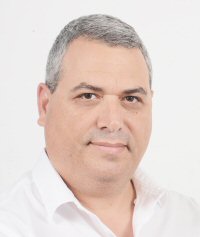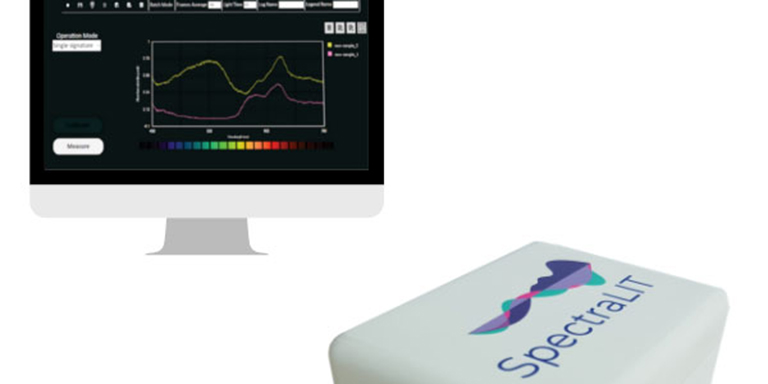
Living things are complicated and relationships between them – including infections of one by another – even more so. This makes finding diagnostic tests for diseases such as COVID-19 a tough technological nut to crack.Israeli complementary metal oxide semiconductor (CMOS) sensory chip maker Newsight Imaging was fortunately in a position to do this. Newsight creates chips for spectral imaging sensors – which can identify molecules based on the wavelengths of light they absorb. Such a sensor can identify molecules unique to the COVID-19 virus, indicating whether or not a person is infected.Newsight has raised US$7 million A-round through Hong Kong-Mainland China-Israel venture-financing firm Infinity Capital and investor George So, Founder of artificial intelligence company AIinnoBio. He focuses on investments in the Guangdong-Hong Kong-Macao Greater Bay Area. Eli Assoolin, CEO and Co-founder of Newsight imaging, explains how the device will work.Does your technology constitute a lab-on-a-chip, a concept that was generating a lot of excitement a few years ago?
Newsight Imaging uses a completely different technology to detect substances like water contaminants or COVID-19 body response. While a lab-on-chip uses a one-time bio-chip that actually must interact with the material in order to create a signal, Newsight technology uses light absorbance, so the same chip, same device is used for an endless number of checks, and with a disposable cuvette. You had already developed CMOS spectral analysis chips for diagnosis – how easy was it to adapt this template for COVID-19 detection?
Four months ago we were completely uncertain about our chances to capture the COVID-19. We knew we have an outstandingly accurate technology for the range of 400-to-700-nanometre spectral signatures but we lacked the medical research to validate that this technology can trace viruses like COVID-19. Fortunately, we engaged with Sheba Medical Center, the largest hospital in the Middle East, and one of the top 10 hospitals according to Newsweek magazine. With the scientific support, we were able to complete a very successful feasibility test with the hospital, and now we intend to extend the pilot lo a larger scale using much more samples. Had you previously developed chips for other high-profile epidemic diseases such as Ebola?
No, COVID-19 was the trigger for us to look at viruses and spectral solutions for healthcare.Taking samples, transporting them to a lab and awaiting results makes tests slow, clumsy and expensive at present. Apart from governments and hospitals, which key markets would want these fast-working portable (even hand-held) devices?
Newsight is experiencing exciting times. Lots of leading-tier companies and executives are approaching us, each comes with a different angle and challenge that our technology can solve - sports and cultural events, travel industry, tourism, business, schools … all of them can use our immediate, affordable detection technology to break the chain of infection and to resume normal life. Could your chip power a device that gives results within minutes? That would interest especially airlines, for example, which are eager to have a device that can clear travellers.
Yes, we are working now with a top logistics and security company that has a lot of presence in airports, to create a one-second check for mass screening of passengers.Could you scale up production to produce millions of these devices in a matter of months?
The device is based on our revolutionary chip, and chips, as is well known, can be scaled into such mass production in a matter of months. The rest of the components are much more common so we do not see an issue with a mass-production ramp-up. We also have licensees such as Hong Kong’s AIinnoBio of Dr George So, that received a licence to build devices based on our technology, and it seems that they can carry great momentum. How straightforward will it be to adapt the chip for other diseases such as malaria or hepatitis B?
The device was proved in labs for three different tropical viruses. It is only a matter of the right research, the right calibration and adjustment and we can support an endless number of cases. Actually, the device is being tested now for air pollution, water, food and beverages, so many opportunities are ahead. Making sensor chips for complex devices such as robots and autonomous vehicles, as well as medical applications, means Newsight plugs into extensive and very sophisticated industrial networks. Israel is a good place for this; will your Infinity Capital tie-up help you gain greater access the thriving Greater Bay Area ecosystem?
All our investors are from [Mainland] China, usually [introduced] through Hong Kong-based companies. We have a very tight and warm relationship with our Chinese partners and Board members – Dr Likai Li [Chairman of Ennohub Technology], Mr Frank Chen, [Finance Director] of Infore group, Ms Claire Zhao, [Vice President of] Infinity Capital - they have visited us in Israel, and we used to come to the mainland almost every month before the COVID-19 pandemic. Besides the sub-companies we have today in Zhuhai and Shenzhen, we intend to establish one in Hong Kong too. Our partners in Hong Kong, corporate advisory firm ACH Worldwide led by Director Amanda Lim, are taking care of our investments and promoting our business. Readers can learn more about Newsight when Michal Cooper-Kozlovich, Director of Strategic Partnerships at Newsight, speaks as a panel member at a webinar on 12 August organised by the Hong Kong Trade Development Council’s (HKTDC) Tel Aviv office and Via Meshi. She discusses Newsight’s rapid action in developing a COVID-19 diagnostic solution. Register here.
Newsight Imaging is a member of the HKTDC’s T-box (Transformation Sandbox) programme, which aims to help small and medium-sized enterprises transform and upgrade.
Related links
Newsight Imaging
Via Meshi

